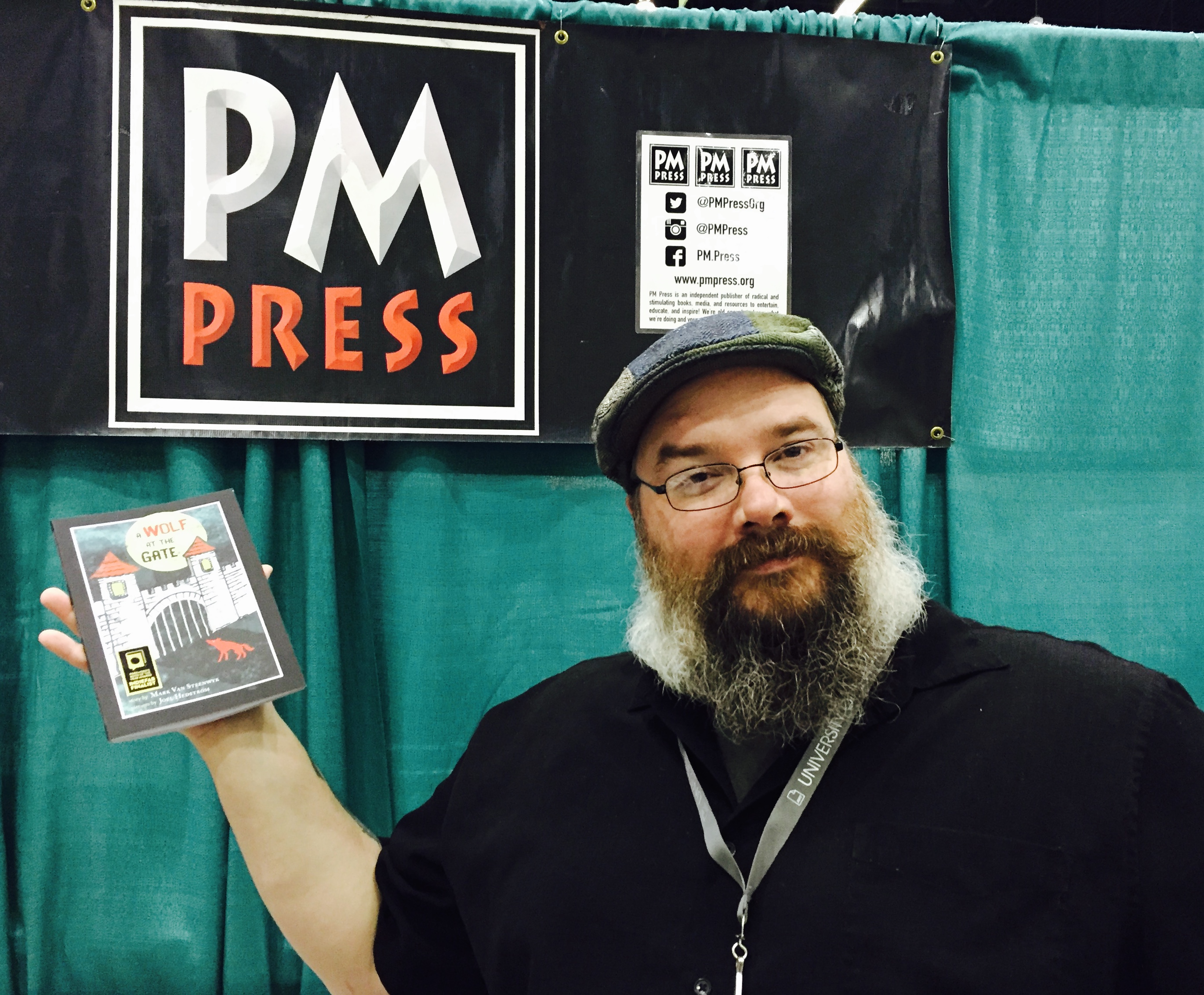By Mark Van Steenwyk
Yesterday, I flew from Minneapolis to San Francisco to read books to children. This is a new gig for me. All of my other books are for adults. And, even though those books haven’t sold loads of copies, I am confident that I could line up a speaking gig in any major city to talk about my grownup books. And I’d probably an honorarium and expenses covered. That’s how the grown-up nonfiction gig tends to work.
But writing for kids is different. They don’t have money. They are fickle critics. They haven’t really even learned how to be coldly polite yet. It is a tough gig. But it is important work.
And so, this morning, I made my way to a leftist book fair, excited that they had signed me on to do a dramatic reading of my book, A Wolf at the Gate. I was excited that a radical event was giving space to not only childcare, but the formation of children.
But when I arrived, they didn’t have my event on the printout. Nobody knew where I was supposed to be. And so they told me I could try to corral some of the children in the play area to sit down as I read my book to them. In radical spaces, children are often an afterthought. And in that moment, my work was an afterthought as well. It was a frustrating, but familiar, experience.
Some people become children’s authors and do book events for kids because they are one of those people who love hanging around with children. Not me. It isn’t as though I hate kids—far from it. I have great relationships with a number of kids, especially my eight year old son, Jonas. But I don’t get energized by hanging out with kids. For the most part, I prefer the company of adults.
No,
I write for kids because our world is fucked without them. I write for
kids because they have something we need: imagination. We
live in a dark world. Our nation has been at war for all of my life.
Increasingly, folks are protesting economic injustice, environmental
injustice, racial injustice…but we don’t seem much closer to justice. In fact, since Trump was elected in November, it seems likely we’re moving further from justice.
If developing ever-sharper-analysis and trying to communicate that analysis loudly were enough to turn the tide, we wouldn’t be in this mess.
No, I’m convinced our problem is a lack of imagination. Shifting our political realities requires imagining something different. The reason systemic oppression is so easily accepted by most human beings is that we lack imagination. As Hannah Arendt puts it: “Clichés, stock phrases, adherence to conventional, standardized codes of expression and conduct have the socially recognized function of protecting us against reality.”
Adults
are often set in their ways, but children often have an imagination for
a new world. I’ve started writing for children because I believe that
our hopes for justice rest with them. And, while I don’t typically enjoy
hanging out with little radicals, I do admit that there are few things
in life better than meeting a woke child…a child that is frustrated with
oppression, passionately believes Black Lives Matter, and wants to know
the latest update from Standing Rock. Kids that casually correct you
when you misgender someone. Kids that think poverty shouldn’t exist.
Radical movements need children. But they often forget it. Many radical gatherings, political conferences, and book fairs don’t even have childcare. The ones that do often treat children as something to be pushed to the side so grownups can have radical conversations without being interrupted. But where are the radical gatherings that celebrate children? That honor them? That treat them as fully embodied activists?
Look, I get that kids slow us down a bit. If your goal is to get 500 people to quickly show up for an action, figuring out childcare (or, even more, figuring out how to include children as full participants) may not seem like a priority. But if you goal is to build deep and strong movements, a long view is required. And children are a necessary part of the political long view.
If our aim is to develop ever-sharper-analysis while trying to communicate that analysis loudly, then giving attention to kids doesn’t make sense. There is, after all, a reason I don’t read Noam Chomsky to my eight year old at bedtime. But, if our goal is to nurture deep imagination for other possibilities, then giving attention to children in our midst makes all the sense in the world.
Back to Mark Van Steenwyk’s Author Page | Back to Joel Hedstrom’s Illustrator Page

